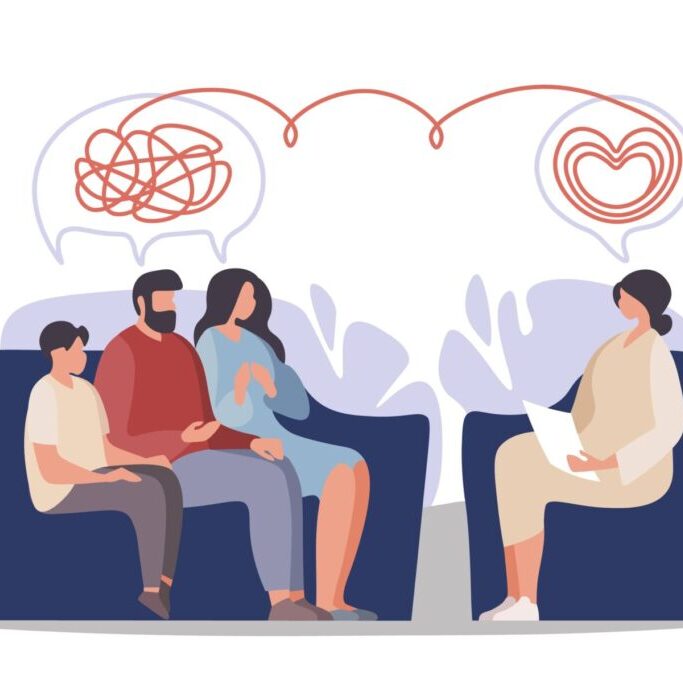Different Types of Therapists

With so many different types of therapists to choose from, finding the right Chicago therapist can be a daunting task. It can be difficult to understand the differences between Chicago therapists and find the one that is the best fit for your needs. There are literally thousands of Chicago therapists. You may be wondering where to start!
Let’s explore the various types of therapists in Chicago and the unique approaches they take to help their clients. By understanding the different backgrounds and training you can make an informed decision about which type of therapist is right for you. Whether you are seeking help for a specific mental health condition or simply looking for support and guidance in managing life’s challenges, there is a therapist out there who can help.
There are many different types of therapists that can provide support and the choice is important. The best predictor of therapy outcomes is actually the relationship between the Chicago therapist and the client. Understanding the differences between these therapists can be helpful in finding the right fit for you. Here are some of the most common types of Chicago therapists and a brief overview of their approach and focus:
- Clinical counselors: Clinical counselors are mental health professionals who help individuals and groups address a wide range of mental health issues, such as anxiety, depression, and relationship problems. They often use a combination of talk therapy, cognitive behavioral therapy, and other techniques to help clients develop coping skills and improve their mental health. They have graduate-level training focused exclusively on providing individual and couples therapy as well as on topics that specifically impact therapy and mental health.
- Social workers: Social workers provide a range of services to individuals, families, and communities in need. They often work with people who are struggling with poverty, abuse, addiction, and other challenges.
Clinical social workers, like those on the team at Tandem Psychology, focus specifically on providing therapy. They have specialized and additional training in mental health and the provision of therapy, beyond their non-clinical counterparts. With that said, our clinical social workers may also have a keen awareness of resources and services, such as healthcare and education.
- Marriage and Family Therapists: Marriage and family therapists are mental health professionals who specialize in treating individuals, couples, and families. They focus on the interpersonal relationships within a family and how these relationships can impact mental health and well-being. Marriage and family therapists often use a systems approach, which means that they view individuals within the context of their family and other interpersonal relationships.
This allows them to understand and address the unique dynamics within a family and how these dynamics may be contributing to mental health issues. In addition to providing talk therapy and other forms of individual and group counseling, marriage and family therapists may also use a range of techniques, such as family therapy and couples therapy, to help families and couples improve their communication, resolve conflicts, and strengthen their relationships.
They may work with individuals who are struggling with mental health issues, such as anxiety, depression, or relationship problems, as well as families and couples who are dealing with challenges such as parenting, infidelity, or substance abuse.
- Clinical psychologists: Clinical psychologists are mental health professionals who specialize in diagnosing and treating mental health disorders. They often use a variety of approaches, including talk therapy, cognitive behavioral therapy, and psychodynamic therapy, to help clients understand and overcome anxiety, depression, stress, addiction, and relationship problems.
- Neuropsychologists: Neuropsychologists are psychologists who specialize in understanding the relationship between the brain and behavior. They often work with children and families to evaluate them for potential neurological conditions, such as ADHD. Neuropsychologists use a variety of tests and assessments to evaluate cognitive functioning and develop treatment plans.
- Developmental psychologists: Developmental psychologists study the psychological development of individuals across the lifespan. They may work with children, adolescents, and adults to understand how psychological and environmental factors influence development and may use a range of techniques, such as observations, interviews, and tests, to gather data. Developmental psychologists are especially helpful for problems, such as anger, depression, anxiety, or school avoidance, in teens and younger children.
- Health psychologists: Health psychologists focus on the psychological and behavioral factors that influence physical health and illness. They may work with individuals who are struggling with chronic health conditions, such as diabetes or heart disease, to help them manage their condition and improve their overall health and well-being.
- Child psychologists: Child psychologists specialize in understanding the psychological development of children and adolescents. They often work with children who are experiencing mental health issues, such as anxiety or depression, and may use a range of techniques, including play therapy and gaming therapy, to help them cope with their challenges.
Ultimately, the right Chicago therapist for you will depend on your specific needs and goals. Contact us to help us connect you to a Chicago therapist who has the background and experience to meet your needs. Our therapists are available both in-person in our Lakeview offices as well as virtually.
Connect with a Chicago therapist today!
This blog is made for informational and educational purposes only. It is not medical advice.
The information in this blog is not intended to (1) replace a one-on-one relationship with a qualified licensed health care provider, (2) create or establish a provider-patient relationship, or (3) create a duty for us to follow up with you.



